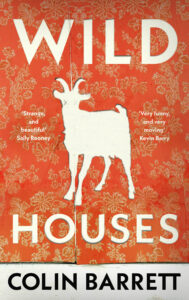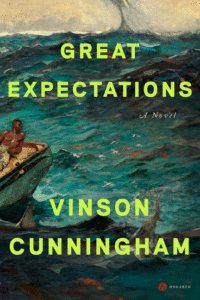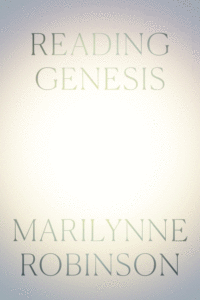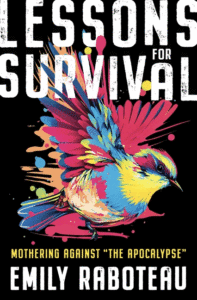
What Should You Read Next? Here Are the Best Reviewed Books of the Week
Featuring New Titles by Marilynne Robinson, Colin Barrett, Vinson Cunningham, and More
Marilynne Robinson’s Reading Genesis, Colin Barrett’s Wild Houses, and Vinson Cunningham’s Great Expectations all feature among the Best Reviewed Books of the Week.
Brought to you by Book Marks, Lit Hub’s home for book reviews.
*
1. Wild Houses by Colin Barrett
(Grove)
9 Rave • 3 Postive • 1 Mixed
“[A] heartbreaker of a debut novel … It could be argued that the heart and soul of Irish character, were one to venture into generalities, stem from a sensitivity to light. Certainly, the characters in this novel see very little sun, both metaphorically and practically … Nicky—and her quest—is the soul of this fine novel … In Colin Barrett’s nimble hands…the lives of a small collective of mournful souls become vibrant before us, and their yearning is depicted with wistfulness, no small amount of humor and one dangerously ill-tempered goat.”
–Dennis Lehane (The New York Times Book Review)

2. Headshot by Rita Bullwinkel
(Viking)
8 Rave
Read an excerpt from Headshot here
“Bullwinkel’s conceit could’ve leant itself to oversimple takeaways: to meditations on, or sendups of, the bootstraps myth; to meditations on, or sendups of, girl bosses. The omniscient narrator does sometimes zoom out to make sharp, anthropological comments about the coaches’ less-than-noble motivations … But these moments…aren’t usually didactic or heavy-handed. Instead, these ideas are made particular with metaphor and strange details, which expand time poetically in each scene … This movement between graceful meditation and descriptions of fighting allows for both a dignified and a critical treatment of boxing.”
–Maddie Crum (The Washington Post)
3. Great Expectations by Vinson Cunningham
(Hogarth)
7 Rave • 1 Positive • 1 Pan
“Despite the novel’s steady drip of astute observations about Obama and his groundbreaking campaign, the excellent view David gives us is relentlessly introspective … The result is a coming-of-age story that not only captures the soul of America but also feels the unquenchable thirst for meaning which passeth all understanding.”
–Ron Charles (The Washington Post)
**
1. Reading Genesis by Marilynne Robinson
(Farrar, Straus and Giroux)
8 Rave • 4 Positive • 2 Mixed
“A writer’s book, not a scholar’s; it has no footnotes. Its power lies in the particular reading it gives us of one of the world’s foundational texts … There are some arguable points. Robinson’s depiction of law as a framework of instruction that is up to us to keep or break is extremely modern and individualistic, and doesn’t square with the enforced tribal behavior of the Mosaic code … These are the idiosyncratic incidentals of a genuinely idiosyncratic reading. Against them, there is the tough-minded continual splendor of Robinson’s attention to Genesis’ figures in the landscape.”
–Francis Spufford (The New York Times Book Review)

2. If You Can’t Take the Heat: Tales of Food, Feminism, and Fury by Geraldine DeRuiter
(Crown)
3 Rave • 1 Mixed
“Delivers everything the book’s subtitle promises: mouthwatering descriptions of marvelous food (and one unforgettably horrific dining experience), stories that will evoke plenty of snorting and laughing out loud, and those that will prompt sympathetic seething over well-documented incidents of food service industry misogyny … There should be lots of well-deserved publicity for this amiable collection that’s likely to appeal to a wide range of readers.”
–Kathleen McBroom (Booklist)
3. Lessons for Survival: Mothering Against “The Apocalypse” by Emily Raboteau
(Henry Holt and Company)
1 Rave • 3 Positive
“She skillfully interweaves observations by friends, scholars and literary figures like Emily Dickinson and Toni Morrison with grim climate data and social science findings … While Raboteau grapples with much that is wrong with our troubled world, she does so with bracing honesty and insight. The strength of her book is her willingness to express concerns that many feel but are reluctant to voice.”
–Tiya Miles (The New York Times Book Review)
Book Marks
Visit Book Marks, Lit Hub's home for book reviews, at https://bookmarks.reviews/ or on social media at @bookmarksreads.
























